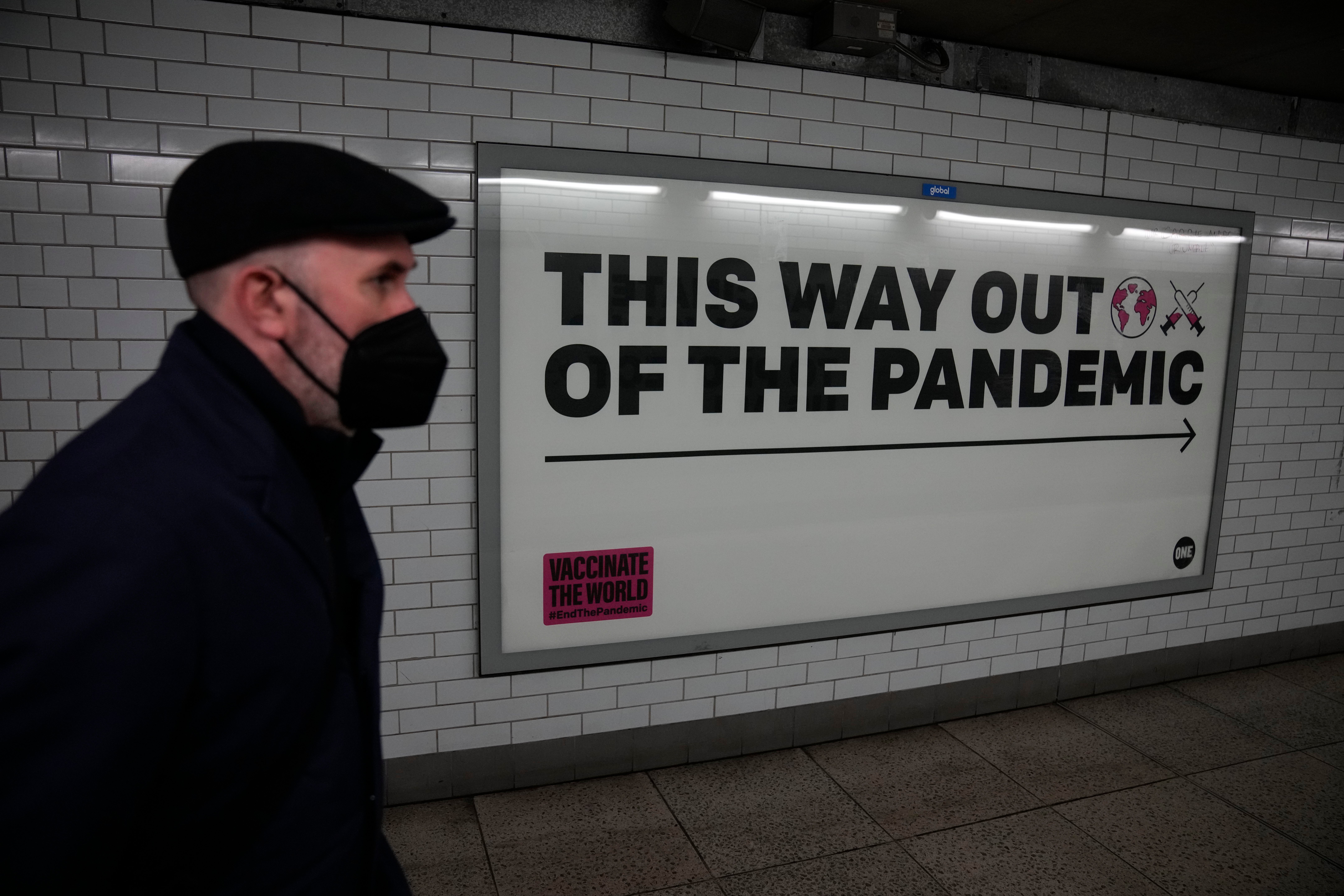Scientists cautious as England set to end COVID curbs
Scientists are warning the British government not to weaken the country’s ability to monitor and track the coronavirus when Prime Minister Boris Johnson ends the requirement for people in England to self-isolate if they contract COVID-19

Your support helps us to tell the story
From reproductive rights to climate change to Big Tech, The Independent is on the ground when the story is developing. Whether it's investigating the financials of Elon Musk's pro-Trump PAC or producing our latest documentary, 'The A Word', which shines a light on the American women fighting for reproductive rights, we know how important it is to parse out the facts from the messaging.
At such a critical moment in US history, we need reporters on the ground. Your donation allows us to keep sending journalists to speak to both sides of the story.
The Independent is trusted by Americans across the entire political spectrum. And unlike many other quality news outlets, we choose not to lock Americans out of our reporting and analysis with paywalls. We believe quality journalism should be available to everyone, paid for by those who can afford it.
Your support makes all the difference.Scientists warned the British government on Monday not to weaken the country’s ability to monitor and track the coronavirus after Prime Minister Boris Johnson ends the requirement for people in England to self-isolate if they contract COVID-19.
Johnson will announce details in Parliament on Monday of the government’s plan for “living with COVID” by treating it like other transmissible illnesses such as flu. The legal requirement to self-isolate for at least five days after a positive coronavirus test is expected to be replaced by guidance, and mass testing for the virus will be scaled back.
The new plan foresees vaccines and treatments keeping the virus in check as it becomes endemic in the country.
Johnson urged people not to “throw caution to the winds,” but said it was time to move “away from banning certain courses of action, compelling certain courses of action, in favor of encouraging personal responsibility.”
Some scientists said it was a risky move that could bring a surge in infections and weaken the country’s defenses against more virulent future strains.
Andrew Pollard, director of the Oxford Vaccine Group, which developed the AstraZeneca coronavirus vaccine, said “the decision about when and how to reduce restrictions is enormously difficult.”
He said it was essential to maintain “surveillance for the virus, an early warning system if you like, which tells us about new variants emerging and gives an ability to monitor whether those new variants are indeed causing more severe disease than omicron did.”
Johnson’s Conservative government lifted most virus restrictions in January, scrapping vaccine passports for venues and ending mask mandates in most settings apart from hospitals in England. Scotland, Wales and Northern Ireland, which set their own public health rules, also have opened up, although more slowly.
Monday’s announcement applies only to England, which is home to 56 million of the U.K.’s 67 million people.
A combination of high vaccination rates in the U.K. and the milder omicron variant meant that easing restrictions didn’t lead to a surge in hospitalizations and deaths. Both are falling, though the U.K. still has Europe’s highest coronavirus toll after Russia, with more than 160,000 recorded deaths.
In Britain, 85% of people age 12 and up have had two vaccine doses and almost two-thirds have had a third booster shot.
The announcement will please many Conservative Party lawmakers, who argue that the restrictions were inefficient and disproportionate. It could also shore up Johnson’s position among party lawmakers, who have been mulling an attempt to oust him over scandals including lockdown-breaching government parties during the pandemic.
Health psychologist Robert West, a member of a government advisory committee, said the government looked set to “abdicate its own responsibility for looking after its population.”
“It looks as though what the government has said is that it accepts that the country is going to have to live with somewhere between 20,000 and 80,000 COVID deaths a year and isn’t really going to do anything about it,” he said, speaking in a personal capacity. “Now that seems to me to be irresponsible.”
A reminder that the coronavirus remains widespread came with the news that Queen Elizabeth II tested positive for COVID-19 on Sunday. Buckingham Palace said the 95-year-old monarch was experiencing mild, cold-like symptoms and was continuing with light duties.
___
Follow all AP stories on the pandemic at https://apnews.com/hub/coronavirus-pandemic